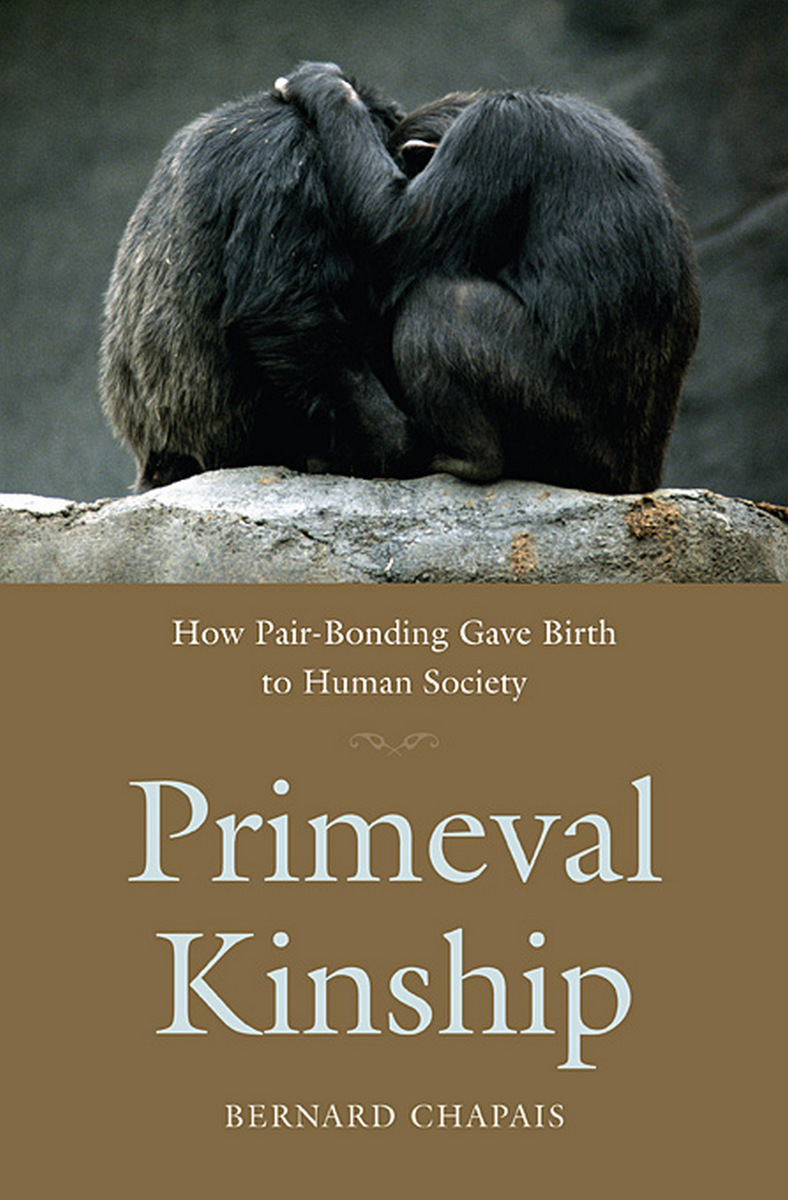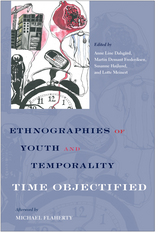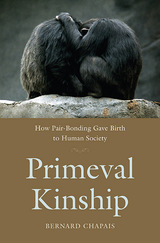eISBN: 978-0-674-02942-2 | Cloth: 978-0-674-02782-4 | Paper: 978-0-674-04641-2
Library of Congress Classification GN487.C43 2008
Dewey Decimal Classification 306.83
At some point in the course of evolution—from a primeval social organization of early hominids—all human societies, past and present, would emerge. In this account of the dawn of human society, Bernard Chapais shows that our knowledge about kinship and society in nonhuman primates supports, and informs, ideas first put forward by the distinguished social anthropologist, Claude Lévi-Strauss.
Chapais contends that only a few evolutionary steps were required to bridge the gap between the kinship structures of our closest relatives—chimpanzees and bonobos—and the human kinship configuration. The pivotal event, the author proposes, was the evolution of sexual alliances. Pair-bonding transformed a social organization loosely based on kinship into one exhibiting the strong hold of kinship and affinity. The implication is that the gap between chimpanzee societies and pre-linguistic hominid societies is narrower than we might think.
Many books on kinship have been written by social anthropologists, but Primeval Kinship is the first book dedicated to the evolutionary origins of human kinship. And perhaps equally important, it is the first book to suggest that the study of kinship and social organization can provide a link between social and biological anthropology.
See other books on: Human evolution | Human Society | Kinship | Primatology | Zoology
See other titles from Harvard University Press




























